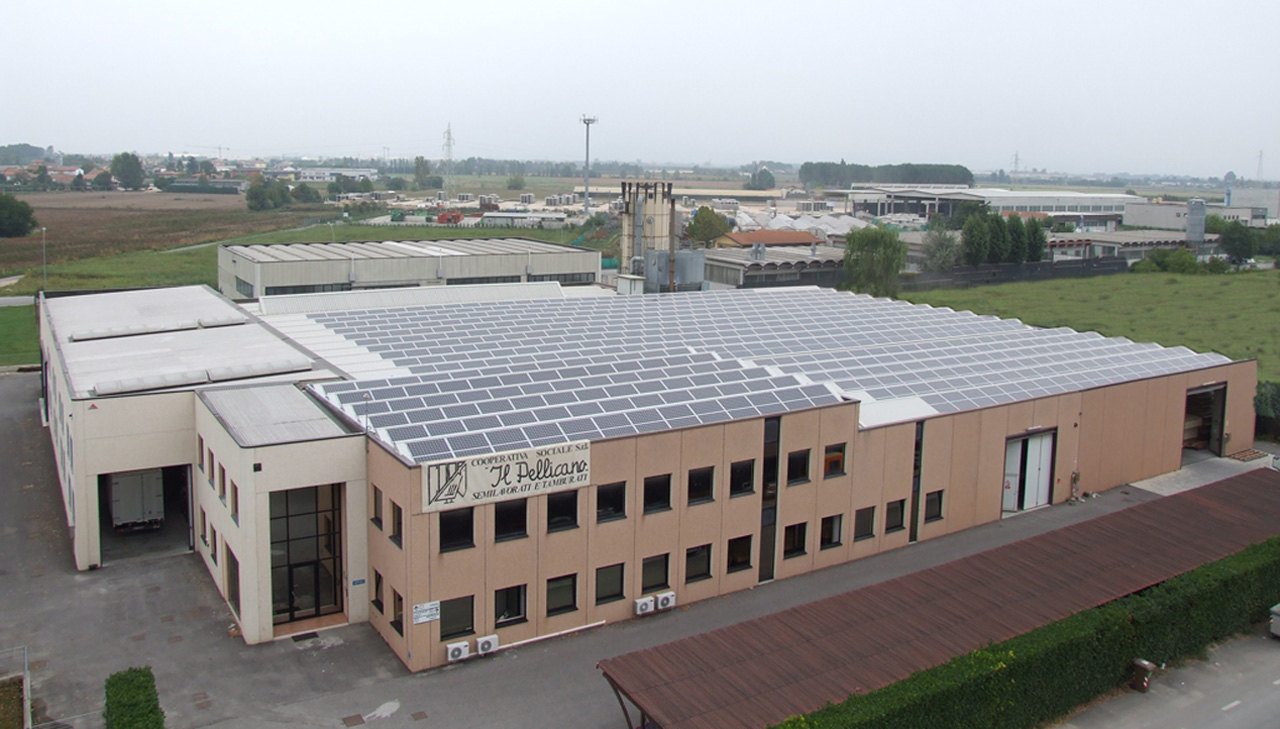

Il Pellicano coop.soc.

Province of Verona, Italy
September 2023
Furniture
Manufacturing
Canada,
Italy
La cooperativa sociale Il Pellicano, dal 1979 è una presenza costante nel settore del mobile in legno e arredamenti d’interni completi producendo intarsi, tamburati ,semilavorati e moderni arredamenti su progetto del cliente. Mettere al centro la persona, dare un’opportunità, saperla valorizzare in un’azienda non diversa ma al pari delle altre: questa è la mission sulla quale è stata fondata la cooperativa per dare una dignità lavorativa alle persone diversamente abili. La cooperativa Il Pellicano è un’azienda composta da un laboratorio con moderni macchinari; dispone inoltre di un ufficio tecnico che affianca il cliente con sviluppo e personalizzazione del progetto attraverso il disegno 2D e 3D. Oltre all’industrializzazione di lavorazioni in serie per importanti ditte del settore si è specializzata negli anni in forniture d’arredamento d’interni per hotel, strutture ricettive, centri congressi, ristoranti, comunità di accoglienza, negozi e uffici. Da sempre attenta all’aspetto di sostenibilità ambientale promuove il fenomeno di economia circolare interno per riutilizzare in maniera sostenibile il materiale di scarto, impiega materie prime certificate e a salvaguardia del territorio e dal 2009 produce, con impianto fotovoltaico, energia elettrica pulita e rinnovabile per
Overall B Impact Score
Governance 11.3
Governance evaluates a company's overall mission, engagement around its social/environmental impact, ethics, and transparency. This section also evaluates the ability of a company to protect their mission and formally consider stakeholders in decision making through their corporate structure (e.g. benefit corporation) or corporate governing documents.
What is this? A company with an Impact Business Model is intentionally designed to create a specific positive outcome for one of its stakeholders - such as workers, community, environment, or customers.
Workers 60.5
Workers evaluates a company’s contributions to its employees’ financial security, health & safety, wellness, career development, and engagement & satisfaction. In addition, this section recognizes business models designed to benefit workers, such as companies that are at least 40% owned by non-executive employees and those that have workforce development programs to support individuals with barriers to employment.
What is this? A company with an Impact Business Model is intentionally designed to create a specific positive outcome for one of its stakeholders - such as workers, community, environment, or customers.
Community 10.7
Community evaluates a company’s engagement with and impact on the communities in which it operates, hires from, and sources from. Topics include diversity, equity & inclusion, economic impact, civic engagement, charitable giving, and supply chain management. In addition, this section recognizes business models that are designed to address specific community-oriented problems, such as poverty alleviation through fair trade sourcing or distribution via microenterprises, producer cooperative models, locally focused economic development, and formal charitable giving commitments.
Environment 11.4
Environment evaluates a company’s overall environmental management practices as well as its impact on the air, climate, water, land, and biodiversity. This includes the direct impact of a company’s operations and, when applicable its supply chain and distribution channels. This section also recognizes companies with environmentally innovative production processes and those that sell products or services that have a positive environmental impact. Some examples might include products and services that create renewable energy, reduce consumption or waste, conserve land or wildlife, provide less toxic alternatives to the market, or educate people about environmental problems.
Customers 0.9
Customers evaluates a company’s stewardship of its customers through the quality of its products and services, ethical marketing, data privacy and security, and feedback channels. In addition, this section recognizes products or services that are designed to address a particular social problem for or through its customers, such as health or educational products, arts & media products, serving underserved customers/clients, and services that improve the social impact of other businesses or organizations.